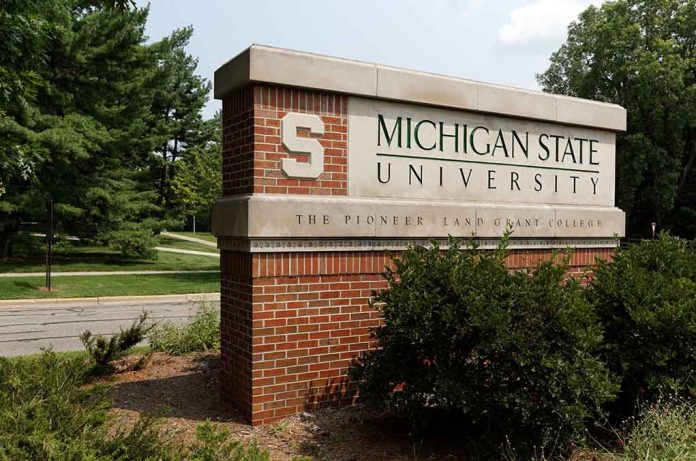
More than half of Gen Z graduates now believe their college education was a poor investment as AI disrupts the job market and student debt approaches $2 trillion.
Key Takeaways
- 51% of Gen Z graduates regret their college investment compared to 41% of millennials and just 20% of baby boomers
- The average cost of a bachelor’s degree has doubled in the past two decades while student loan debt approaches $2 trillion
- 68% of Gen Z graduates believe they could perform their current job without a college degree
- AI is causing 45% of Gen Z graduates to feel their degrees are increasingly irrelevant
- Despite challenges, college graduates still earn more and face lower unemployment rates than those with only high school diplomas
Generation Z’s Growing Disillusionment with Higher Education
America’s youngest working generation is experiencing unprecedented buyer’s remorse regarding their college education. According to recent research by Indeed, 51% of Generation Z graduates now view their college degrees as unworthy of the financial burden they’ve taken on. This represents a dramatic generational shift in attitudes toward higher education, with only 41% of millennials and a mere 20% of baby boomers sharing this sentiment. The skepticism reflects a perfect storm of financial pressures, rapidly changing workforce demands, and technological disruption that has many young Americans questioning traditional educational pathways.
The financial math is particularly troubling for today’s graduates. The average cost of obtaining a bachelor’s degree has doubled over the past two decades, while the return on investment for certain majors continues to decline. Some degrees—particularly in fields like psychology or English—may take over 20 years to pay off, leaving graduates wondering if their education was worth the price tag. With total student loan debt approaching the $2 trillion mark, young Americans are increasingly feeling trapped by educational decisions made in their late teens.
Gen Z grads say their college degrees were a waste of time and money as AI infiltrates the workplace https://t.co/1V8Lv8U2Dy pic.twitter.com/pkHLVEqFEs
— New York Post (@nypost) April 21, 2025
The Student Debt Burden
The financial consequences of college attendance extend far beyond tuition payments. Student loans are actively hindering career development for many young professionals, with 38% of graduates reporting that their debt has limited their career growth more than their diploma has accelerated it. For these Americans, student loans represent not an investment but an anchor dragging down their financial prospects and career mobility. This burden is particularly pronounced among Gen Z and Millenials, who entered the workforce during periods of economic uncertainty and rising living costs.
The statistics paint a concerning picture of young adults struggling to launch: 4.3 million Gen Z individuals are currently classified as “NEETs”—not in education, employment, or training. This growing demographic represents both personal challenges for these young Americans and a concerning trend for the economy as a whole, signaling that traditional pathways to employment and financial independence may be breaking down for a significant portion of the youngest adult generation.
AI’s Growing Impact on Career Value Propositions
Artificial intelligence is rapidly reshaping the workforce landscape, adding another layer of complexity to the education value equation. Nearly 70% of young graduates now believe they could perform their current job without the degree they spent years obtaining. More specifically, AI developments are causing 30% of graduates overall—and a staggering 45% of Gen Z—to feel their degrees are becoming increasingly irrelevant in the face of technological change that values adaptability and specific technical skills over traditional educational credentials.
The shift is evident in hiring practices as well. According to Indeed, 52% of U.S. job postings now don’t list any formal education requirements, focusing instead on skills and capabilities. This trend reflects employers’ growing recognition that traditional degrees may not always indicate job readiness, particularly in rapidly evolving fields. Meanwhile, enrollment in AI-specific courses has quadrupled on platforms like O’Reilly, demonstrating workers’ understanding that specialized technical knowledge may now carry more weight than general academic credentials.
The Continuing Value of Education
Despite these challenges, education experts caution against dismissing college degrees entirely. College graduates still earn more over their lifetimes and experience lower unemployment rates than those with only high school diplomas. The value of higher education extends beyond securing a first job, encompassing critical thinking skills, professional networks, and foundational knowledge that can prove valuable throughout a career spanning decades and multiple positions.
“It’s shortsighted to focus only on immediate employment, as that makes the assumption that the value of higher education is only to get your first job,” noted one education professional.
What does appear clear is that both educational institutions and employers must adapt. Universities face pressure to demonstrate concrete value and job readiness for graduates carrying significant debt. Employers are increasingly offering upskilling programs and training tools to help workers integrate AI into their workflows rather than be replaced by it. The future workforce will likely require both traditional educational foundations and continuous learning to remain competitive in an economy where technological change is the only constant.









